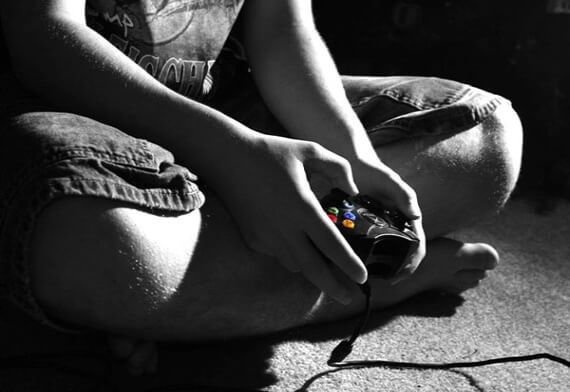We are all game addicts to some extent - whether it's our readers, one of our many talented writers, or you - yes you.
We play games, talk about them with peers and write articles about them. Video games are an interest, a hobby, and a passion for many of us.
The difference is how we control our desire to play games. Like any addiction, video game addictions can get out of hand, but when? Certainly when it causes harm to yourself or others - affecting life temporarily or even, in extreme cases, fatally.
The most recent story involving the severity of gaming addiction happened last September in South Korea. Two parents reported to authorities that they woke up one morning to find their three month old infant had passed overnight. The autopsy garnered suspicion as the child was unnaturally thin and dehydrated.
Malnourishment was ruled the cause of death - the neglect stemmed from the parents addiction to an MMO called PRIUS - which they often played for twelve hours a night at a nearby internet cafe.
The police were set to arrest the parents after the child's funeral but the couple had disappeared. The authorities finally located the parents this past Wednesday and the two were arrested for neglect. They admitted to feeding the child rotten milk and spanked the crying child on numerous occasions. Ironically, in the PRIUS (similar to The Sims), the couple's digital avatars were also married and raising a child - the digital child was perfectly healthy.
This isn't the first fatal conclusion to a case of gaming addiction - last year a 28 year old man dropped dead after playing Starcraft for fifty hours straight without stopping to eat or drink.
Additionally, last month there was a near fatal incident regarding an overly committed World of Warcraft player. The young man attacked his mother, brother and grandfather after the simple request from his mom to simply quiet down a little. the player felt his WoW experience shouldn't have been interrupted and went after her. His brother tried to intervene at which point the grandfather also noticed the commotion. When the grandfather saw the young man choking his mother and threatening to kill everyone, the older man grabbed his gun. The grandfather grazed his grandson's forehead with a bullet. Ultimately, the young man was arrested - all because he was asked to turn down the volume on his game.
With the rapid evolution of technology, interest in the video game industry is rising just as fast. Games are becoming more and more realistic - and even more addicting. The examples of extreme game addiction are only a small portion of the plethora of similar occurrences. Fatal endings are clearly the worst cases, but gaming addictions can put a damper on relationships, education and careers. The certain growth of these situations, in addition to the severity, should be a red flag with the need for solution.
Almost every game requires some form of account - Xbox Live, PSN, Battle.net. Maybe it's up to the game server providers to set up some form of monitoring system on their networks. Logging the trends of each account and flagging potential risky gameplay patterns may help prevent future issues. If it seems consistent, the account could be temporarily locked and require communication with the gamer before unlocking their system again.
Governing gameplay within each game may be another solution. Depending on the length of the game, there could be an internal timer and if the game is played, for example, five hours straight then the game auto-saves and locks the user out for a certain amount of time. This will force them to take a break and snap back to reality. Certain titles on the Nintendo Wii suggest taking a break on occasion during load screens - a step in the right direction but that's only certain games on one platform.
When it comes to kids being addicted, parents should be the biggest solution. Children are vulnerable and extremely drawn to games and it's up to the parents to ensure that their gameplay is controlled.
I have an eight month old son, and I know he is my priority. The only times I will play games are during his naps and after he goes to bed for the night.
I personally wouldn't play games around him - that's as good as neglect. A child needs a parent's attention and care. I knew having a child would change my habits and day to day routines, and I accepted that with open arms.
Life is a gift, especially one you've created. It's not worth throwing that away on video games - after all, without life there would not be video games.
No matter what situation or circumstance, gaming addiction is a tough thing to break. It's becoming more of an issue, proving sometimes harmful or fatal, and generally a new issue our techologically evolving world is facing. Being the severity of it's consequences, this is something that may need attention sooner rather than later.
How do you view video game addictions? What ways do you think could help govern gaming addiction?
Sources: ABC News, True Crime Report

